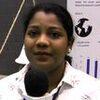Explore all the information on
Swine management
Pig production is the systematic rearing of pig breeds on scientifically based management principles for economic benefit. The main objectives of pig production are to provide consumers with pig meat and related products and to generate income for farmers.
Pig production plays a significant role in the livestock industry, providing an important source of protein and other valuable products. The systematic approach to pig rearing ensures that the pigs are healthy and well-cared for, which in turn leads to better quality products and higher yields. The focus on scientific principles and efficient management helps to reduce waste and increase profitability for farmers.
A swine producer who masters the art of good management has excellent profit opportunities. This is especially true with disease prevention and control. A healthy herd of good-growing, quality breeding animals — adequately fed and housed — provides maximum profit opportunities for the owner who does not over-spend for facilities and/or feed.
Introduction: Climatic inadequacies may affect welfare and performance of pigs. The aim of this study was to evaluate the potential of running the heating system backwards during the summer with the aim to accomplish a more comfortable indoor climate. Materials and Methods: The study was made in herd with a module stable for fatteners with a natural mechanic ventilation system. Each unit had two pens sized 19.6 m 2 , out of which 5.7...
Comments : 0
Recommendations: 0
Introduction: Weaned piglets suffer many stressors such as sudden change of feed, change of pigs groups and passive protection decrease with ageing. The aim of this study was to investigate the effect of the inclusion of a free and buffered organic acids blend (OAs) to drinking water (DW) of weaned pigs on performance in presence or absence of medication to control enteric disease. Materials and Methods: One-hundred and forty (140) pigs in a conventional herd...
Comments : 0
Recommendations: 0
Introduction: Benchmarking has been widely practiced worldwide in the swine industry to improve farm management and productivity. Best practice benchmarking is defined as identifying those practices and processes associated with superior efficiency and performance. In the best-practice benchmarking for breeding farms, measurements in high-performing and ordinary farms have been used to provide values of target performance, using the 10th or 25th upper percentile of the...
Comments : 0
Recommendations: 0
Ten research projects have been funded as part of the Swine Health Information Center’s Wean-to-Harvest Biosecurity Program in collaboration with the Foundation for Food & Agriculture Research and the Pork Checkoff. Each project is designed to achieve the objectives of cost-effective, innovative solutions for a significant biosecurity gap in U.S. swine production. Institutions receiving awards in this first round of funding are Iowa State University, Carthage Veterinary Service,...
Comments : 0
Recommendations: 0
The Swine Health Information Center seeks a second round of research proposals to investigate cost-effective and innovative technologies, protocols, or ideas to enhance biosecurity during the wean-to-harvest phase of pig production, due April 28, 2023. Funding for the selected proposals will be provided by SHIC, the Foundation for Food & Agriculture Research, and Pork Checkoff as part of SHIC’s Wean-to-Harvest Biosecurity Program to be implemented over 2023-2024. The first round of...
Comments : 0
Recommendations: 0
Introduction: Although current evidence suggests a relatively low prevalence of MRSA in pigs in the USA, concerns remain about spread of multidrug resistance bacteria from the farm environment to swine workers and the wider community. The aim of this study was to characterize antibiotic resistance profiles of SA isolated from growing pigs in the USA. Materials and Methods: Twenty nasal swabs were collected from 36 growing pig sites in 11states in the USA,...
Comments : 0
Recommendations: 0


Selecting the Correct Methionine Source – A Key Index for Successful Pig Production
Suggested link
Introduction: Piglets from gilts have poorer performance and health during later life. The objective of this study was to evaluate the effect of sow parity and other lactation parameters on pig welfare lesions in the weaner and finisher stages. Materials and Methods: The study was conducted on a farrow-to-finish commercial farm. At birth, the sex and bodyweight (BW) of 847 piglets was recorded as well as the parity of their dam and the number of piglets born...
Comments : 0
Recommendations: 0
Introduction: Tail biting outbreaks rate among the major threats in pig production. To prevent or at least minimize tail biting docking is routine practice in Germany, although it contradicts the Council Directive 2008/120/EC. Many factors, like climate, general health status, stocking density, food and water supply and especially insufficient environmental enrichment have a major impact on the tail biting incidence. In the present study, a straw-filled rooting tower...
Comments : 0
Recommendations: 0
Introduction: Animal welfare, has been traditionally evaluated by measuring level of aggression and stress parameters. However, feeding behavior can also provide a valuable indication of comfort or stress for gestating sows in large groups, when fed with ESF systems. Materials and Methods: The study was conducted at Albesa-Ramadera a 3300 sow, Site 1 farm, based in Catalonia, Spain. The farm has large group gestation (128 to 175 sows per group) and utilizes...
Comments : 0
Recommendations: 0
Introduction: Tail biting is a global welfare problem in the pig industry leading to significant tail injury and potential carcass rejection. The temporal effects of such injuries and subsequent healing are presently unknown, although limb amputation in humans can lead to abnormal neural activity and decreased nociceptive thresholds. In order to evaluate potential sensitisation following tail damage, we created a model by surgical amputation of tails, and assessed mechanical...
Comments : 0
Recommendations: 0


Updated Vitamin Requirements Across Species: Microvit® Nutrition Guide
Suggested link
Introduction: To evaluate the effects of removing antibiotics (AB) from the diet of 1st and 2nd stage weaner pigs on the performance of negative behaviours. Materials and Methods: Weaned pigs in a total of 12 groups of 35 pigs each, had in-feed AB removed (NO; n=6) or maintained in the diet (AB; n=6). Groups were observed 1 day/wk between 0900 and 1300h for 3x5min periods each and all occurrences of fights, head knocks, tail, flank and ear biting...
Comments : 0
Recommendations: 0
Introduction: According to Danish regulations gilts and sows must be housed in groups from weaning until 7 days before expected farrowing. Mixing sows both after weaning and after mating may/will impair reproduction results and increase prevalence of lameness. A Danish study shows that approximately 90 % of medical treatments in gestation are attributed to lameness. The aim of the current study was to reduce the frequency of gilts and sows being treated for lameness in the...
Comments : 0
Recommendations: 0
Introduction: Piglet mortality, mainly within the first 4 days after farrowing, is still an important welfare issue and an economical challenge. Variation in piglet mortality between herds with similar genetic material and physical environment indicates that the herd`s management is a crucial factor. The objective of this survey was to assess the importance of different management routines around the time of farrowing and other farm qualities for piglet survival in...
Comments : 0
Recommendations: 0
Introduction: The objective of the present work was to collect preliminary production data on a newly-developed farrowing pen for individually loose-housed sows and to use these results to produce a pen for commercial practice which has a high piglet survival rate and improved sow and piglet welfare. Materials and Methods: The “Sow Comfort” farrowing pen” (7.9 m2) comprises two compartments: a “nest area” and an activity/dunging...
Comments : 0
Recommendations: 0
Introduction: Castration procedure is a painful method which reduces welfare and could reduce performance. Some trials demonstrated that meloxicam prior castration procedure in piglets could reduce acute pain decreasing behaviors relates to a lack of welfare. Any study using infrared thermography (IT) was found to evaluate the inflammatory process after castration procedure in piglets. This study aimed to evaluate inflammatory process using IT associated with behavior and...
Comments : 0
Recommendations: 0
Introduction: Sow body condition is a critical factor in all stages of the production cycle affecting health, welfare, performance and longevity. Additionally, the direct economic impact on annual costs of unoptimized feeding can be substantial. Therefore, it is important to monitor sows throughout their lifetime to ensure well-being, maximize production efficiency, optimize culling decisions and determine the adequacy of the feeding management practices. Multiple tools are...
Comments : 0
Recommendations: 0
Arthi Amalraj (Ghent University) explains the benefits of an enriched environment on weight gain and feed conversion, during IPVS2022 in Rio de Janeiro, Brazil....
Comments : 1
Recommendations: 0


Selecting the Correct Methionine Source – A Key Index for Successful Pig Production
Suggested link
Oliver Stringer (Department of Infectious Disease, Imperial College London) discussed the advantages of this process when serotyping APP, during IPVS2022 in Rio de Janeiro, Brazil....
Comments : 1
Recommendations: 0
















.jpg&w=3840&q=75)






